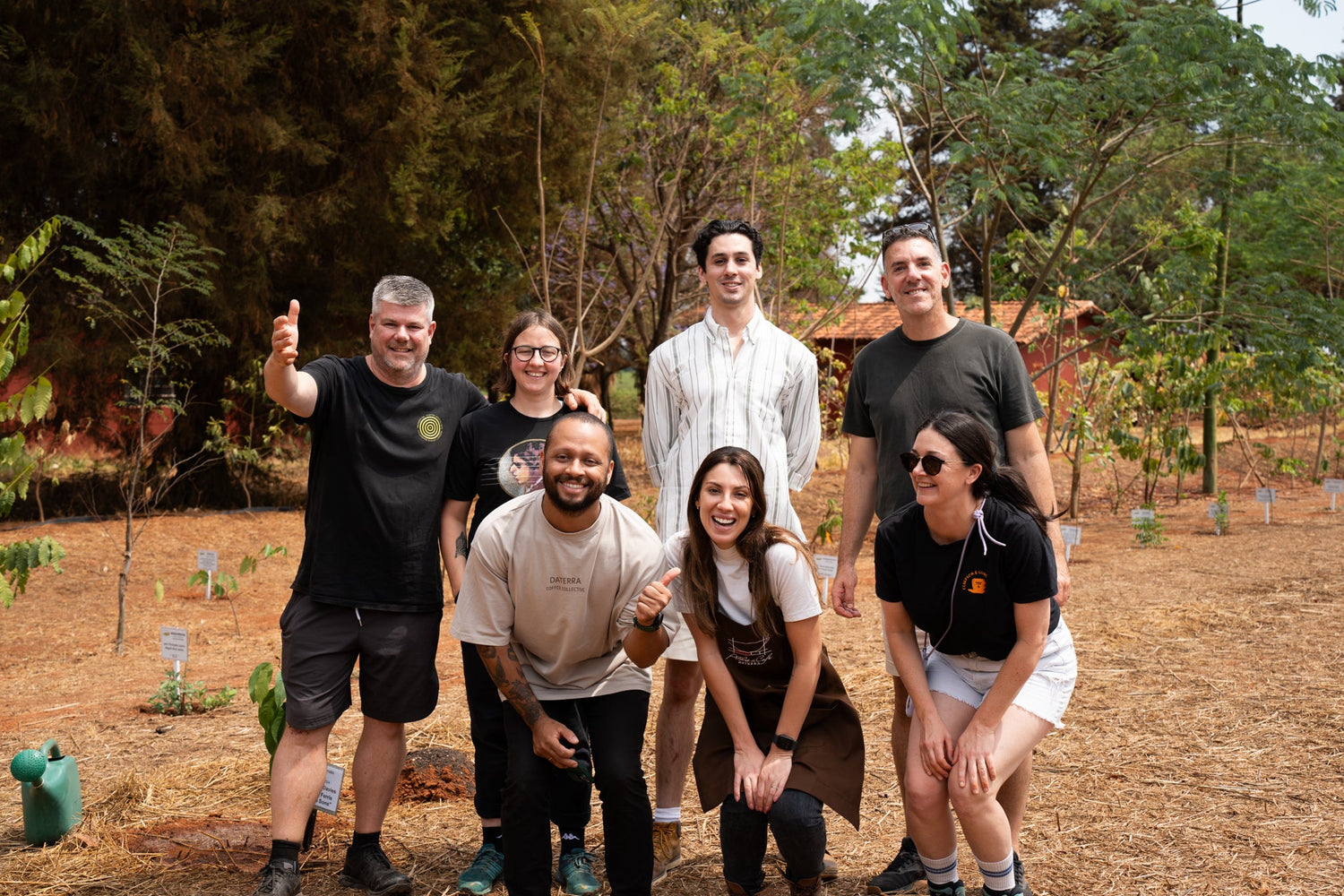“In the beginner’s mind there are many possibilities. In the expert’s mind there are few.” Shunyu Suzuki.
‘Beginner’s mind’ (or Shoshin in Zen Buddhism) is not just for first-time coffee tasters, but is in fact a trick that can help spark a long-forgotten curiosity in an expert's palette.
It’s an attitude and mindfulness approach that can be applied to any practice in life, whether it is truly the first or perhaps the hundredth time we’ve completed a task. A beginner’s mind is when we see things with curiosity and openness, just like a beginner experiencing something for the very first time. With this mind, we are eager and free from preconceptions of what’s to come.
Go back to a time in your life when you’ve learnt something new. Perhaps pedalling a bike without stabilisers or taking your first driving lesson. Remember that all-encompassing sensory feeling of the body and mind immersed in new information. Everything is seen with a fresh perspective, as if glazed in awe and fascination.
With repetition we, of course, become skilled and more able to complete a task with ease. Eventually reaching the point where the action can feel automatic. Turning the pedals of a bike becomes second nature and we switch gears unthinkingly when sitting behind the wheel. This is where we can apply a beginner's mind to experience openly, as if clearing a fog in the glass before us to see plainly what is ahead.
I love this concept and it got me thinking about how we can apply this mindfulness technique to the cupping table? Could approaching our sensory experience with a beginner’s mind and mindful process lead to a clearer understanding of the coffees we’re tasting?
We already go some way to applying this concept when tasting blind, removing our preconceptions based on known producers or origins to taste the coffee for what it truly is. However, without the application of a beginner’s mind, does even the process of a blind cupping become somewhat automatic and second nature, as the body acts the motions of skimming crusts, sniffing the brew and slurping from that familiar spoon unthinkingly. How can we approach the experience to really, truly taste, without falling into the trap of going through the motions and being deceived by our preconception of what’s to come.
Try it. Let’s apply a beginner’s mindset to the cupping table. Begin by seeing the activity with fresh eyes, erasing the hundreds of times you’ve enacted the ritual before. Imagine arriving at this experience with no expectations.
Disclaimer, this one’s gonna take time. Set aside a few more minutes than you normally would to cup. We’re taking it slow here and it’s all part of the process. Switch off your phone and sign out of the emails. Save the commentary
until afterwards. Your personal experience is valid and doesn’t need to be shaped by the opinions of others just yet.
Notice the space around you, the objects in the room. Notice the quality of light, any sounds you can hear, be them subtle or striking. Carefully prepare each coffee, measured and ground with a delicate precision. Feel the heat, noticing steam rising from each cup as you pour the water. Be curious. Tune in to the smallest details of the process. Try and notice a small sensory detail that you’ve never noticed before - a minute sound of spoon on glass or a particular touch of an object in your hand.
As you smell each coffee, allow the inhalation to linger. Noticing how the smell subtly changes with time. Adapting moment to moment. Allow this unique scent to be the only thing filling your mind.

The Climpsons exploring a bit of mindfulness practise at our weekly yoga session
As you prepare to taste by dipping your spoon on the surface, notice the colour of the cup. It’s shade precisely individual and the result of innumerable factors that led it here. Imagine this is the first time you have tasted a coffee. Arrive without preconceptions of what constitutes a good or a bad cup and instead begin with your own experience. Granting each thought that comes to mind it’s own validity. If the mind begins to drift away from us (and it undoubtedly will) come back to the task at hand.
By approaching the everyday with a beginner’s mind the experience is reshaped into something new and unique. The mind becomes fully immersed in the task at hand, unable to drift into planning-mode or lingering on past encounters. The ritual is transformed through its experience presently. Rekindling a child-like curiosity to a coffee professional who’s done it a thousand times before.By Rebecca Wooden
Rebecca Wooden Yoga Classes



